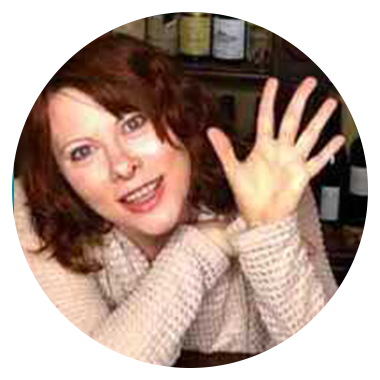Get your personalized private tour of Alsace! Click Here!
Understanding Spoken French:
A Practical Approach
It seems like such a mysterious thing...
Understanding spoken French... It's not something you can study or work hard at.
It just happens...eventually.
At first, you watch the words flying around you. But they're not really words yet. Just sounds. Sounds that don't make any sense (even if you've spent years studying French like me).
Maybe you've had a different experience of it with understanding spoken French.

Hi, I'm Suzele and I'm here to help you create a more interesting, one of a kind trip to Alsace France. There is a lot of useful information that you can use to plan your trip yourself... or... I can do ALL the work for you on a private tour made just for you!
But,
for me, the first year or so around native French speakers was a
nightmare. A nightmare surrounded by charming villages, great wine and
food, but a nightmare nonetheless.
Well, I'm here to tell you that it does get better.
A lot better really.
But it takes patience and a good dose of persistence too.
First off, relax.
It's ok not understanding spoken French. Get comfortable with it. Because it may take you a year to get past this stage.
Make it a point to spend time with English speakers too (or whatever language you prefer) in person, on the phone, on a DVD (for those of you actually living in a different country)...
Whatever way you can do it.
It makes the times when you are not understanding spoken French easier to handle (for those of us living amongst the French).
Think of it like this:
When you were a baby, you heard English all the time. You were probably busy discovering your thumbs at the time.
But the language seeped into your brain whether you "worked" at it or not.
It's the same understanding spoken French.
Except that you're completely aware of your thumbs and you don't feel the need to put everything in your mouth!
You may not know how to use your throat, mouth, and tongue to create French sounds yet, but that is another article (and learning to understand spoken French will help you with that too).
For me, it wasn't really a question of "Do I want to be able to understand French?"
It was more of a "I have to". Of course, I wanted to, but the need was more urgent than before.
So what if you don't need French on a daily basis, but still love it and want to be able to understand spoken French.
Nowadays, it's no problem with DVDs and all.
Just pick up your favorite movie or TV show on DVD and:
- First, make sure it's something that you've practically memorized in English already and something that you love to watch over and over (no point in torturing yourself with something boring!)
- Ok, now try watching it in French with no subtitles at all. How was it?
- Did you catch a few words or more? If you think you can handle it like this, watch it again (and by it, I mean only the first "chapter of the DVD). The secret to learning to understand spoken French is listening to spoken French...a little or a lot...with or without subtitles.
- If you didn't understand anything or just a tiny bit, it's time to move to the next level.
- Now, watch it in French with English subtitles. Since this is supposed to be something you know by heart, this may help you learn some new words or at least recognize some that you already know.
- Ok, the ultimate goal is to eventually not need the subtitles at all and understand everything. BUT, for now, start with just understanding basically what's going on (this applies particularly if you decided to try something you haven't memorized).
How to Understand Spoken French the "Suzele" Way
What I do personally is run each small segment of the DVD in French with no subtitles.
Then in French with French subtitles.
Then in French with English subtitles
And lastly English with French subtitles.
I do the opposite with my students learning English. It helps them a lot getting used to English native speakers. And they have just as much trouble with us as we do with them!
And I go through the entire DVD like this bit by bit.
Slowly.
We learn a lot of new words this way and, more importantly, we learn which words the French tend to use to express themselves.
Sometimes, I'll watch an entire TV episode in one of the different English-French configurations I mentioned above.
There are no rules!
What works now may not be the same as what worked before or what will work later...
But listening to French will train your ears in understanding spoken French.
The trick is, of course, to do it often which is why you have to find something you enjoy watching. It helps if it's something simple (at first).
Complicated plots can be frustrating for beginners as well as unusual French accents.
But, if you're up for it, and you enjoy it, watch what you enjoy.
How long will it take?
If you do it on a regular basis like everyday, maybe as soon as 6 months. It helps if you've been studying French for a few years, but it's not necessary.
Remember, babies don't read or write and they still manage to learn to understand and speak languages.
But then babies make it too easy on themselves. They have no idea how "hard" it is to learn a language ;)



